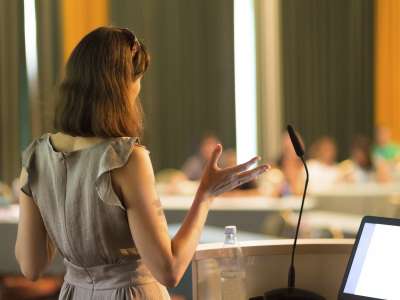
Eight months previously I was standing in a children’s paddling pool, frantically tightening a series of jubilee clips as red-dyed water spewed out of the hose which was meant to connect the large black hydraulic tank in front of me to the pump. I was a mechanical engineering student in the final throes of a group masters project analysing fluid flow and performance of hydraulic tanks used in excavators, desperately patching together our test rig to get results in time for our submission deadline. Mechanical engineering is such a broad field that I had spent time working on robotics, brackets, sugar dispensers, programming, engines and treadmills, and considered a project about hydraulic tanks and ‘diggers’ fairly traditional! My current challenge however was a departure from anything I’d applied myself to before.
Throughout my degree, I had been engaged most by the application of engineering principles to healthcare and medicine. I was taught how contact mechanics could inform joint replacements, how additive manufacturing could be used to provide bio-scaffold structures in regenerative medicine, how computational fluid dynamics could be used to model air flow in the sinuses, and I had designed a prosthesis and an integrated diabetes management system. These experiences led me to look for a job where I could apply these experiences in practice, which led me to the NHS’s Scientist Training Programme (STP), specialising in rehabilitation engineering.
I arrived in rehabilitation engineering therefore with a fairly broad background in engineering (bolstered by time at King’s College London as part of the STP training), but with no experience whatsoever of wheelchairs, special seating, or clinical work. Having a helpful home department who were proactive in showing me the ropes helped me get to grips with how the department worked - but it takes time to get a full picture of the wheelchair service and how wheelchair and special seating provision works. It was a few months into the job when I was forwarded details of the Posture and Mobility Group conference. I saw an opportunity to get a broader view of wheelchair provision, learn from more experienced professionals in the field, see where research was focussed, and gain a greater understanding of the options available for the people our services serve.
I would not have been able to afford to attend the conference, but spotted that the PMG were offering a bursary for people who were, like me, new to the field. I was very grateful to have my application accepted and so be able to attend the conference with only my travel costs to cover.
As the conference rolled around, I was slightly unsure what to expect (despite a fairly detailed itinerary it has to be said). Fortunately, the opportunities I had envisaged were fully realised at the event itself. The comprehensive exhibition included names and equipment I was familiar with, and also those I had not seen before. This helped me to gain an appreciation of the technologies available in the field of posture and mobility, and a more in-depth understanding of how products were designed technically, and used clinically. Talking to exhibitors and other professionals to see how and where products were used was particularly helpful.
The content of the lectures and seminars was similarly informative. The variety of topics covered by presenters from a wide range of professions provided insight not only into their subject matter, but into other perspectives on wheelchair provision. Some (for example the seminar on shape capture techniques for custom-contoured seating) were eminently practical, and I could see how they applied to my job straight away; others were less obvious, but no less useful. I was particularly interested to hear the research-based presentations and seeing which areas are currently to the fore.
Several other STP trainees were at the conference, and it was interesting to compare our experiences – particularly when we were able to do this over a curry, three course meal or drink! These social occasions were great opportunities to meet colleagues from near where I am based as well as other regions of the UK and to gain their perspectives.
Fifteen months on from my experience in the paddling pool, I am still ‘learning on the job’ – probably the main transferable skill I gained from my degree! Attending the PMG Conference 2015 has helped me to develop a broader understanding of posture and mobility, providing context for my training and an opportunity to get up to speed with developments in the field.
I look forward to applying this knowledge as I work towards qualification and become increasingly able to contribute to an important service.
Lewis Crown
Trainee Clinical Engineer
Rehabilitation Engineering Unit
ALAS
Cardiff and Vale UHB






.jpg)



no comments
Add your comment...